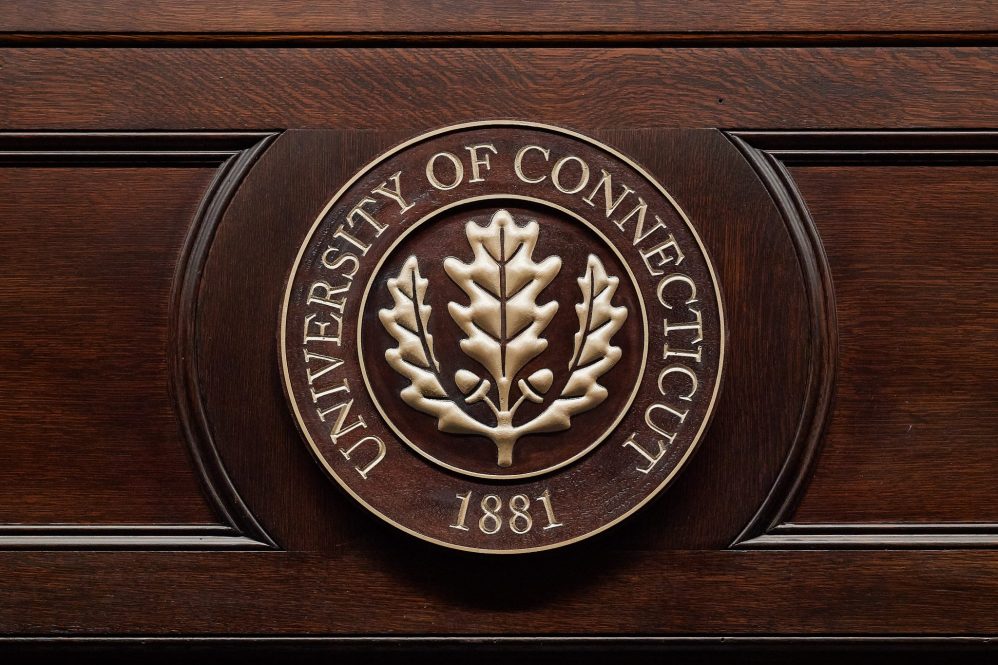To the UConn Community:
This week, the Connecticut General Assembly passed a state budget for the 2024 and 2025 biennium, and the Governor is expected to sign it into law. This measure will allow us to achieve balanced budgets at UConn and UConn Health in the next fiscal year. We continue to be grateful to the Governor, the Office of Policy and Management, and the General Assembly for continuous investment in UConn and for recognizing the value of the state’s flagship university. The proposed budget allows us to continue to provide an affordable and outstanding education to our students, contribute to the state’s economic growth, and provide the highest quality patient care.
UConn’s biggest financial burden in the last 10 years has been the state’s unpaid legacy costs, and this agreement incorporates a budget-neutral element that moves these costs from UConn to the state Comptroller’s Office. This change in methodology will result in the state funding employee retirement costs and the University funding all non-retirement costs. To accomplish this budget-neutral change, the block grant support will be reduced by $20.6 million for UConn and $39.8 million for UConn Health.
The resulting reduction in overall fringe rates means the constituent units of higher education will no longer be required to fund a portion of the state’s unfunded liabilities. This change removes any future risk of increased costs associated with the unfunded liability, and we are hopeful it will make our faculty more competitive when applying for externally funded grants. This will also make UConn more attractive when hiring faculty from other institutions. We want to express our sincere gratitude to the Governor and General Assembly for making this change.
A large percentage of the funds being used to close what would have been a substantial gap in fiscal year 2024 are one-time in nature. Regardless of the source, however, as noted above the funds will allow us to have an FY24 budget that is in balance. In addition, we are awaiting details on a bond package that may be voted on in the coming days that could impact this analysis and the financial position detailed above.
Our fiscal year 2025 state funding levels would leave us with shortfalls estimated to reach at least $47 million at UConn and $51 million at UConn Health, and will require financial improvement plans to generate new revenues and reduce expenses. That, however, is a year away, and we will work internally and then with the General Assembly and the Governor in the coming months in the hopes of mitigating those shortfalls.
In addition to state lawmakers, I would also like to specifically thank our union colleagues for their hard work during this legislative session, especially with respect to removing retirement costs from our budget. I also want to thank our students across all campuses who made their voices heard and advocated for investments in UConn, our students, their education, and the future of our state. We are grateful for this collaboration on numerous issues, and the effective advocacy from both our employees and students clearly made a difference.
As part of the budget legislation, language was included that requires the Connecticut Higher Education Planning Commission to update the state’s Higher Education Strategic Plan by September 2024 and set new goals for 2030. The commission is comprised of UConn and the Connecticut State Colleges and Universities (CSCU) system presidents, provosts, and board chairs. Faculty from both also have representatives, as do the independent colleges and universities and the business community. The Governor will appoint the chair of the commission and we welcome the opportunity to participate in it.
We look forward to the year ahead and to working closely with our state’s elected officials and policymakers on the state’s fiscal year 2025 budget, as well as with the state’s planning commission as it undertakes its work. As we continue building our own strategic plan, we will thoughtfully prioritize, make targeted investments, address the workforce needs of the state, significantly increase philanthropy and research dollars, include metrics and goals for accountability, and identify cost-savings opportunities to help ensure we are operating efficiently.
Sincerely,
Radenka Maric
UConn President



